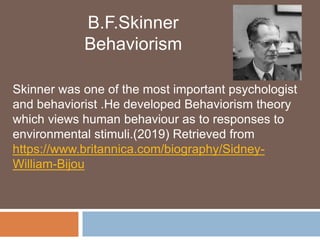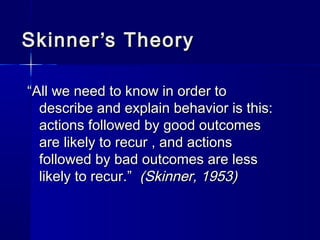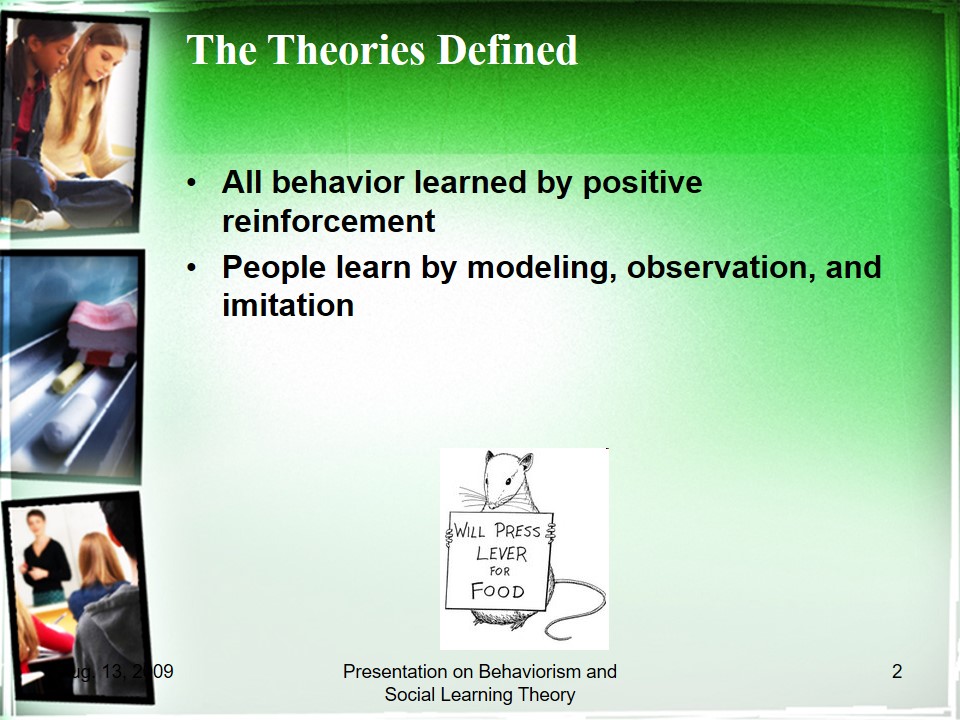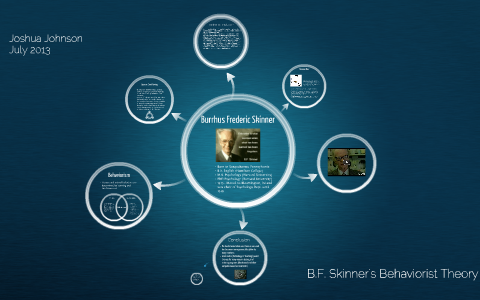Behaviorism is a psychological theory that focuses on the study of behavior and its causes. One of the most influential figures in the development of behaviorism was B.F. Skinner, who is known for his work on operant conditioning.
According to Skinner's theory of operant conditioning, behavior is shaped and modified by its consequences. When an animal or a human performs a behavior and is subsequently reinforced with a reward, the likelihood of that behavior occurring again in the future increases. On the other hand, if a behavior is punished or not reinforced, the likelihood of it occurring again decreases.
Skinner believed that all behaviors, whether they are complex or simple, are learned through this reinforcement process. He argued that the traditional approach to psychology, which focused on introspection and the study of the mind, was flawed because it was impossible to objectively study mental processes. Instead, he proposed that psychology should focus on observable behaviors and the environmental factors that influence them.
One of the main criticisms of Skinner's behaviorist theory is that it ignores the role of internal mental states and emotions in shaping behavior. Critics argue that Skinner's emphasis on external rewards and punishments does not account for the complexity of human behavior, which is often influenced by internal factors such as motivation, cognition, and emotion.
Despite these criticisms, Skinner's work has had a significant impact on the field of psychology and has influenced the development of behavior modification techniques, which are used to treat a variety of psychological and behavioral disorders. His contributions to the field of psychology have also influenced the development of educational techniques and the design of workplaces to promote positive behaviors.
In conclusion, B.F. Skinner's behaviorist theory of operant conditioning has had a lasting impact on the field of psychology and has influenced the development of various techniques and approaches used to modify behavior. While the theory has been criticized for its focus on external factors and its disregard for internal mental states, it remains an important and influential perspective in the field of psychology.
:max_bytes(150000):strip_icc()/2794863-operant-conditioning-a21-5b242abe8e1b6e0036fafff6.png)







